Before you begin, ask yourself if the dog ate chicken bones. A common scenario is for a family member to look at their dog while they finish eating and then ask “Should I just give them some of the leftovers?” If those leftovers are chicken bone, this article will explain why “no.”
There are still some risks to chicken bones, even though they can be found in many other foods. We’ll discuss the reasons why dogs shouldn’t eat chicken bones, and what to do if your pet swallows one.
Dogs are amazing creatures, as you know. Dog owners love their dogs and want the best. Dog owners believe that their dogs are meant to eat bones, just like they did in the past. Dog ate all things back then. This meant that dogs had to chew bones.
My Puppy Ate Chicken Bones
Is it possible to determine if he’s gagging? Can you look in his throat for any bone or irritation and remove it safely? If you’re unsure, get in touch with your veterinarian. You can tell him you are there, and he should stop reading.
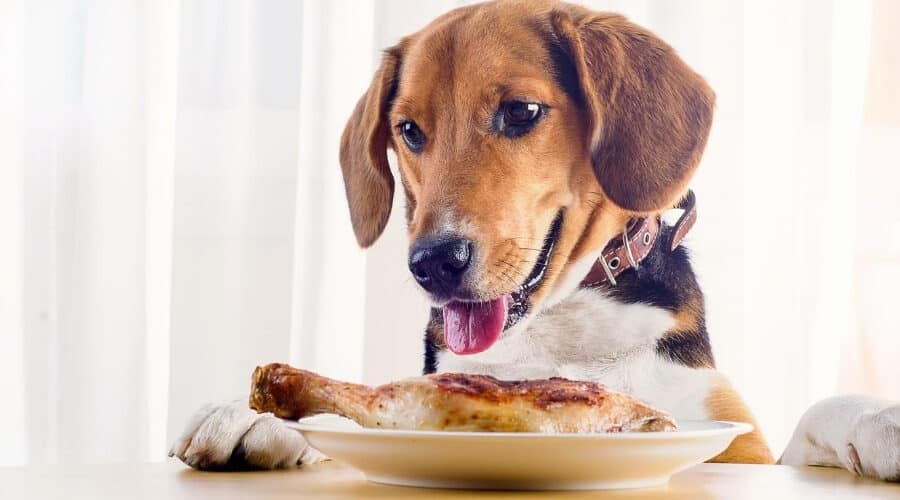
Gastronomically curious dogs are unlikely to snore and gag. The bone will usually be happy in the dog’s stomach. This is still a problem since dogs shouldn’t eat chicken bones. (More on this later).
My Dog Ate Chicken Bones. Next?
After the bone has been ingested, there are three options for removing it from the dog’s body. Your dog may vomit the bone. It is unlikely that this will happen and you should not try to induce vomiting. (Learn more about that later). The vet can remove the bone by making an incision in your dog’s stomach.
The bone might also pass through the dog’s natural digestive system. The bone will be absorbed along the way, it is hoped. This is the most effective and safest method to use unless the bone causes problems. Only dogs in distress will be allowed to be operated on by a veterinarian.
Don’t Make Your Dog Vomit
Inducing vomiting can do more harm than good. It allows the bone to attack the dog’s stomach or throat on its return.
After you’ve determined that your dog does not appear to be in imminent danger, it is a good idea to give your vet a quick phone call to let them know that your dog seems safe.
Most likely, your vet will tell you to “watch and wait,” but let’s remember the difference between cooked bones and raw chicken bones.
What Are The Health Effects of Chicken Bones on Dogs?
Dogs love bones. Dogs love bones. They can keep them busy for hours. They are also a great way to clean their teeth and provide a delicious treat.
But, chewing bones can lead to serious health problems. Dogs who chew bones could have serious health problems and even death. Particularly chicken bones.
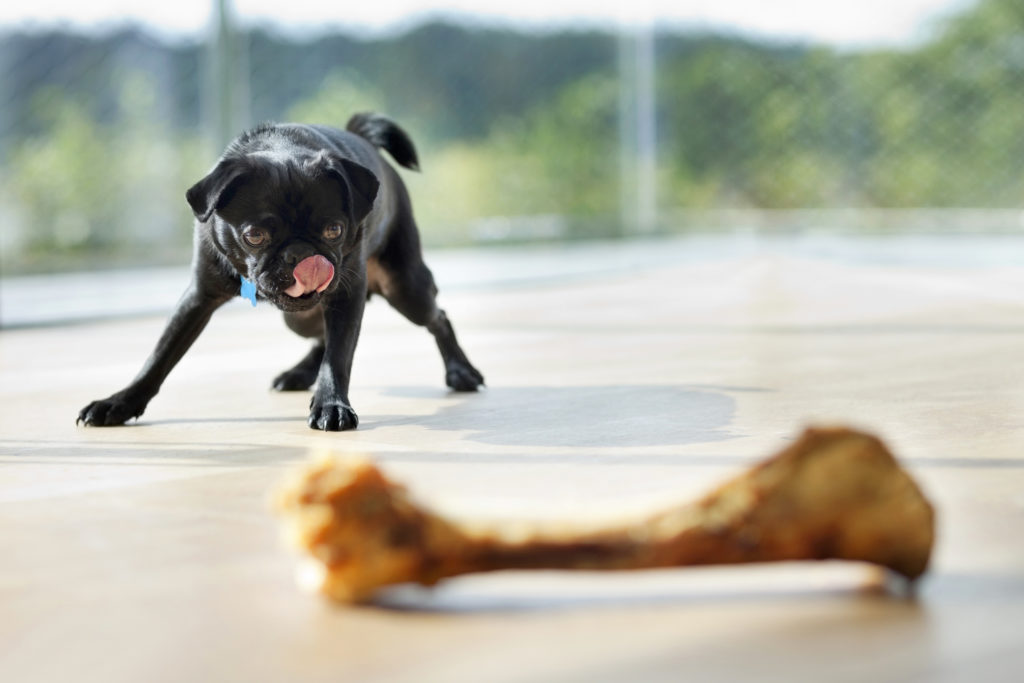
Broken bones can cause broken teeth. Broken bones can easily get lodged in your gums. They can also get stuck in your stomach. Yes, bone injury can cause serious injuries to your dog.
For a variety of reasons, chicken bones can cause problems for dogs.
- Choking: Bones can cause dogs to choke if they are swallowed. If they are swallowed, they can cause severe health problems. If you cannot safely retrieve the bone, this is an emergency situation.
- PerforationChicken bones can splinter which could cause sharp shards to enter your gastrointestinal tract. This is a serious condition that usually requires surgery.
- Blockage A blockage in food and water can be caused by a chicken bone too large to pass through the dog’s digestive system. This can be dangerous and may require surgery.
- Bacterial infections: Chicken bones can become infected with bacteria, including salmonella if they’re not properly stored or grilled.
These Are The Steps you Should Take Right Away
If your dog ate chicken bones, there are steps you can take.
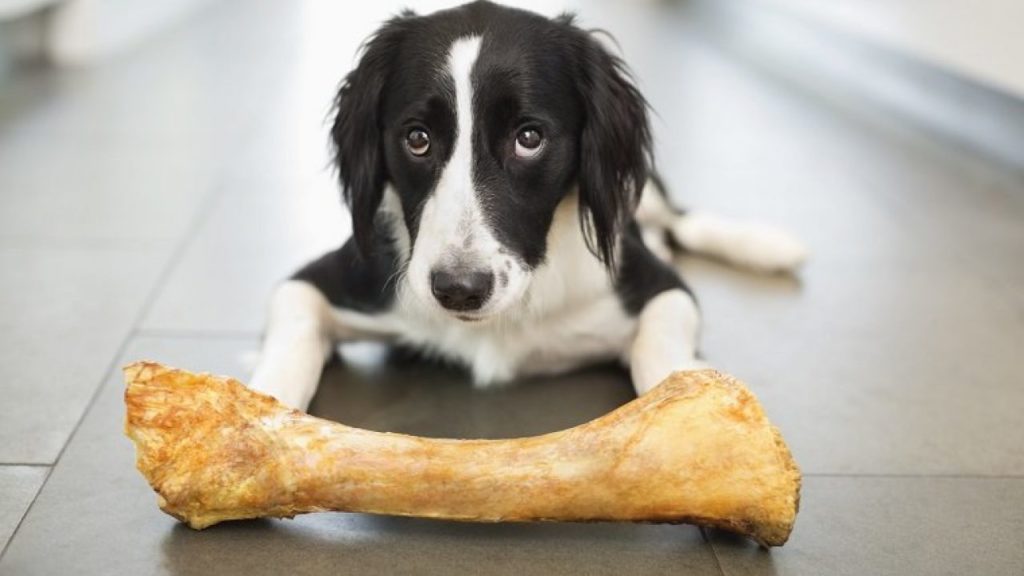
When your dog experiences an unpleasant event, it is important to remain calm. Don’t discipline your dog immediately. Don’t panic and keep your dog calm. Below are step-by-step instructions on how to deal with this situation.
Step 1: Stop further access
Your dog should not eat bones again. Also, ensure your other pets don’t come in contact with the bones. Shut your dog away quickly. You must immediately remove any broken bones from your dog to ensure safety.
Step 2: Call Your Veterinarian
It is completely free to call a veterinarian. They can give you valuable advice about what to do. They will help you evaluate the risks and provide advice based on the breed and size of your dog.
It is possible for the bones to become stuck. Most vets will not recommend your dog vomit unless they’re in severe distress. Your vet might ask you to give your dog something that will ‘cushion’ the bones. This will increase your dog’s chances of reaching its goal and reduce potential damage.
You could try bread, pumpkin, or asparagus. Your vet can advise you on the best way to proceed. Most vets will not ask you to rush your dog in. You should give personalized advice to your dog in order to ensure that they pass the chicken bones.
Step 3: Don’t self-treat your dog
This is a common stage for panicking. Sometimes, dog owners try to take care of their dogs. Dog owners may be concerned about the expense of taking their dogs to the vet. Others may not want to share the details with the vet. They will research all options quickly and try to manage their dog on their own. This can be dangerous.
There might be instructions for how to make your pet vomit at home. Chicken bones can get stuck coming back up. They can get stuck and cause further damage. They can become lodged and cause more damage. Some of the recommended medications might not be safe if your dog has eaten chicken bones. You should not follow any instructions given by anyone other than your vet. Even if your vet has given you the advice, it could be dangerous.
Step 4: Watch out for signs
You can give your dog a pillow, or leave him alone. However, it doesn’t matter what, you should be watching for signs such as lethargy, abdominal pain, and black stool. Be alert for unusual behavior.
Signs and Symptoms
Different outcomes can lead to different signs. Your dog should be fine and will go about his normal routine.
You may notice a dog that is having trouble breathing or choking. They may run around panicked, have difficulty breathing, and may even start coughing.
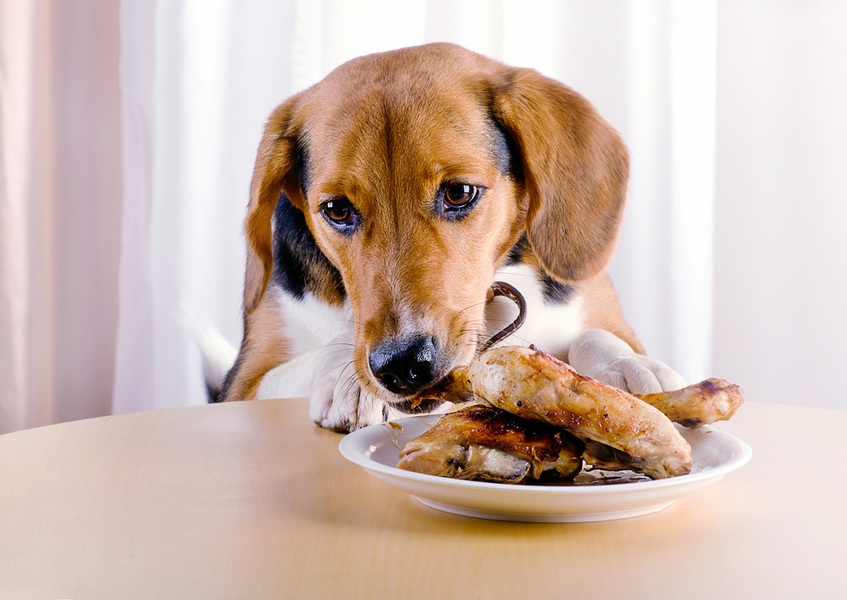
Perforation or blockage can be characterized by vomiting, diarrhea, lethargy, and abdominal pain. Your dog may be exhibiting signs of perforation or blockage such as vomiting, diarrhea, lethargy, and a lack of interest in food.
A bacterial infection can cause symptoms similar to food poisoning. There might be symptoms such as vomiting, diarrhea, and fever.
How to Identify the symptoms and signs of a problem
Is it safe for the dog if the bone passes through his intestine without any issues? There is always the possibility of obstruction.
Ingestion of chicken bones can cause them to lodge in the stomach, small intestine, stomach, or both. Cats are less likely than dogs to remove foreign objects from the intestines.
It is better to wait if your bones aren’t in the best of health. If you think your bones might be in danger, it is important to see a doctor right away.
Signs That Trouble Could be Becoming:
- Vomiting
- Abdominal pain
- Appetite loss
- Fever
- Lethargy
- Trouble defecating
What About The Cooked Bones?
Raw bones can be more dangerous than cooked chicken bone. Raw bones are more dangerous than cooked chicken bones. This can lead to injuries to the dog’s throat or stomach.
Cooked chicken bones can cause serious injury to dogs. This is well-known. This information is only for your future reference. Dogs can have broken bones but they don’t seem to be bothered. What should you do?
When Should I Take My Dog To The Vet?
Unwell dogs should be seen by a veterinarian. Numerous diseases can lead to vomiting, diarrhea, or even lethargy. It is important that you inform your vet if your dog has recently eaten chicken bones. Your vet will be able to quickly diagnose the problem.
If your dog experiences choking, you should immediately consult a veterinarian. The veterinarian will be able to remove the trapped bone and, if necessary, provide emergency medication or oxygen to calm the dog so that the bone can be extracted.
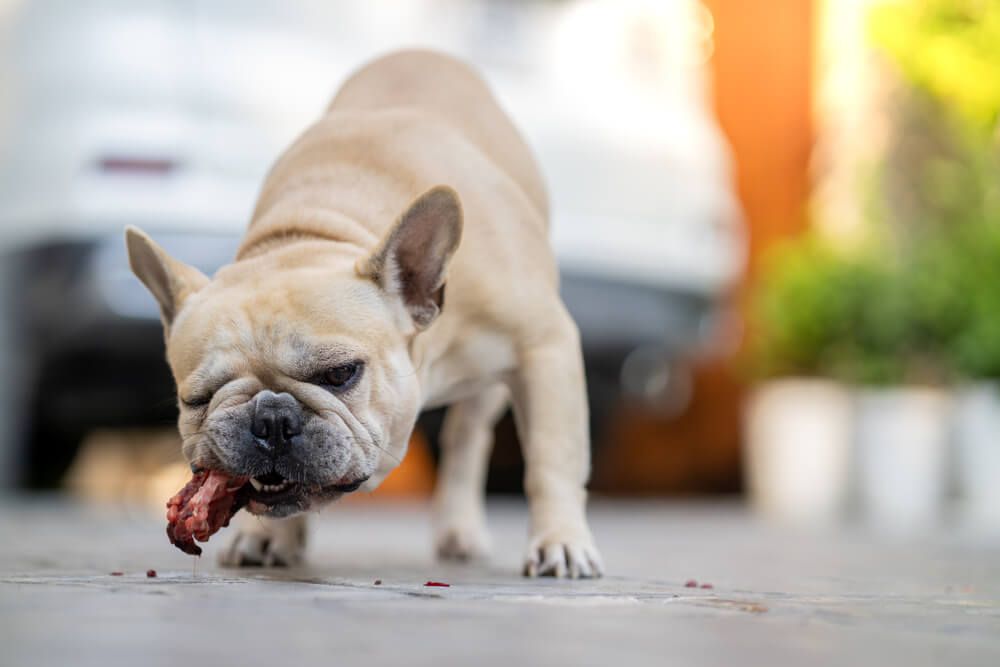
An examination, history, and imaging are all used to diagnose a perforation or obstruction of the ear in a dog. Surgery can remove the bone and repair the organ. Endoscopy allows for access to the upper digestive tract bone. It does not need to be performed on the skin.
Below is a video showing a chicken bone stuck in an animal’s hard palate.
What Happens if My Dog Needs Surgery?
Once you arrive, the vet will inspect your dog. If the bone is not easily visible, the vet will take pictures of your dog’s mouth. These x-rays may be used to aid in the removal. The bone is removed endoscopically using a flexible tube that has a camera inserted into the dog’s mouth.
Endoscopic interventions are extremely effective in pushing or removing the bone from the dog’s stomach. The bone then passes through the dog’s digestive system without complications. An incision is made to access the bone in rare cases. This is only an option in a few cases where a dog has eaten chicken bone.
Prevention is Better Than Treatment
Avoiding exposure is the best way to prevent worry. Make sure you don’t feed your dog any table scraps and make sure that the kitchen trash bins have a lid. You should regularly check your yard for any foreign objects, and keep an eye on your dog when you’re out in the outdoors.
When your dog eats bones, it is important to keep an eye on them. You can discuss with your veterinarian if you are interested in giving your dog a raw food diet.
Can Chicken Bones Kill Dogs?
Dogs can be killed by chicken bones. Although it is rare, it can happen. The most serious cases involve bones that pierce the esophagus. The esophagus runs between the mouth and the stomach, through your chest cavity, alongside your lung and heart.
It’s a ‘dirty’ part of the gastrointestinal tract. There are many microorganisms and bacteria. It’s actually worse than the stomach, as everything that passes through the mouth is carried to the gullet.
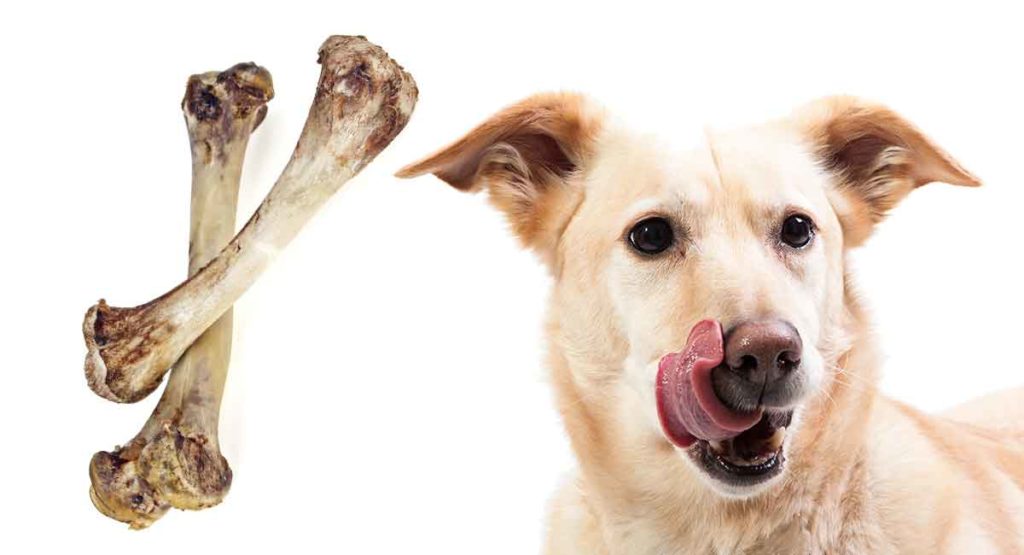
When the protective layers of your gullet are punctured (or ‘perforated’), bacteria can enter the chest cavity through the gullet. Even if the bone fragment doesn’t cause any damage to the heart or lungs, infection and inflammation can result from the piercing of the esophagus. This can lead to serious and sometimes fatal complications.
Can Dogs Eat Chicken Bones Raw?
Because they don’t splinter so easily, raw chicken bones are safer for dogs. However, they are still a potential problem. If your dog does get one, you should still comply with these instructions. Even if your dog is accustomed to eating chicken bones, the risk of infection is low if they are properly ground. Dogs are often fed raw bones, food by many people. It’s common for dogs to catch and eat occasional birds from your yard.
What if My Dog Ate A Chicken Bone Before?
However, just because a dog was allowed to eat bones before doesn’t mean they will be OK if they do so again. While most dogs will be able to eat a bone without any problems, there are some instances when they might not.
Is It Natural To Eat Dog Chicken Bones?
Dogs are designed to eat prey and bones. Dogs have been eating bones for hundreds upon hundreds of years. What’s the difference between then and now? Modern veterinary medicine has allowed us to learn more about the causes of dog deaths.
Even cameras can be used to check the damage done to the digestive system when bones have been eaten. However, just because something is natural does not mean that it is safe. Dogs are more likely than cats to chew bones if they eat them fast. This could be because they want to hide the evidence, get away with it, or because their owners tug on their lead and ask them to move.
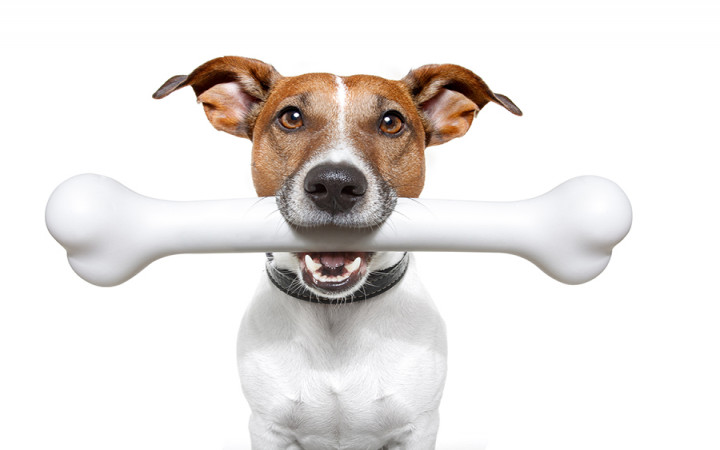
Even Labradors were found to possess a “greedy gene” that isn’t common in the early dogs. Either way, chewing bones carefully is better than gulping them down!
Help! My Dog is Choking on a Bone!
You should call your nearest vet immediately if your dog is acting strangely after eating chicken bones.
Bones can get stuck in the mouth, particularly chicken bones and pork ribs. This can lead to pain, breathing difficulties, or even death. It’s okay to let your dog breathe.
What Should I Do?
It is important to check for any bones getting stuck in your dog’s mouth. This can lead to excessive licking, pawing, and drooling. You might notice sneezing and coughing if the bone is further back.
The presence of bones in the esophagus can cause breathing difficulties, such as pain, vomiting, and gulping. These signs will likely occur within ten minutes. However, if the bone reaches the stomach, it can take up to an hour for them to manifest.
The worst case scenario is when the bone reaches the stomach. However, you don’t have to relax completely if that happens. Perforation of your intestines can still occur, and this can lead to peritonitis. This is extremely painful and may require extended hospitalization.
How long until chicken bones are gone?
You may wonder when your dog will be able to relax again after the chicken bone adventure. What is the average time it takes to get through a chicken bone? It depends on the dog’s age, breed, size, and diet. The chicken bone should be passed within 24 hours. However, some dogs may take up to two days to pass the chicken bones.
Conclusion
You should now be able to understand how to respond if your dog eats chicken bones. It is important to keep your dog calm and not stress them out. Your vet should be contacted immediately. Follow their instructions. You may be able to save your dog’s life if you follow the instructions of your vet. Your vet should diagnose any dog that needs surgery immediately.
F.A.Q.
What should you do if your dog eats a chicken bone?
You should check your dog’s stool every day to make sure you see any bone fragments. If the bone fragments are not visible within 72 hours of ingestion, or according to your veterinarian’s recommendations, it is a good idea for you to take your dog to the vet. They will check to ensure that the bones haven’t become stuck in the dog’s stomach, esophagus, or throat.
Will my dog be OK after eating chicken bones?
Dogs have been eating bones for thousands of years. Most of the time they are able to process them well. Usually, chicken bones dissolve as soon as they reach the stomach. This is before they can become dangerous. Dogs are usually able to pass chicken bones easily.
How long after eating chicken bones would a dog get sick?
What is the average time a dog would get sick after eating chicken bones? It depends on the dog’s age, breed, size, and diet. The chicken bone usually passes in 24 hours. However, some dogs may need to wait for the chicken bones to pass.
How much bread should I give my dog after eating chicken bones?
Experts recommend feeding dogs weighing 5-20 lbs something that wraps around their bones and acts as a “pillow” to prevent them from falling apart. Use 1/2 to 1 slice of high-fiber bread or 1/2 cup canned plain, unflavored pumpkin.
